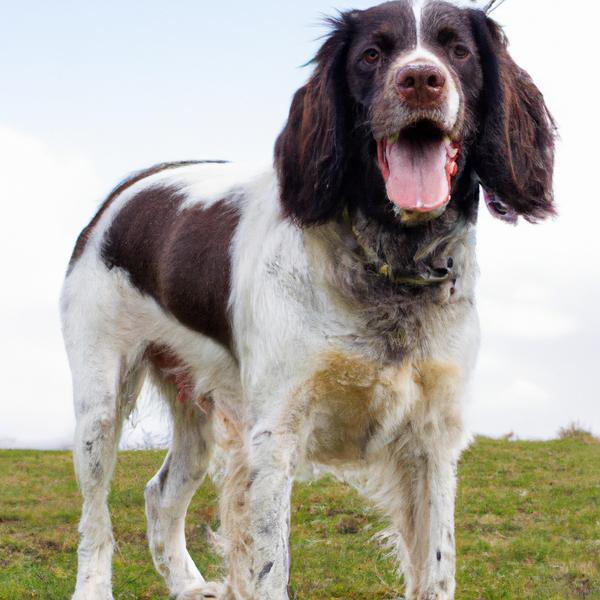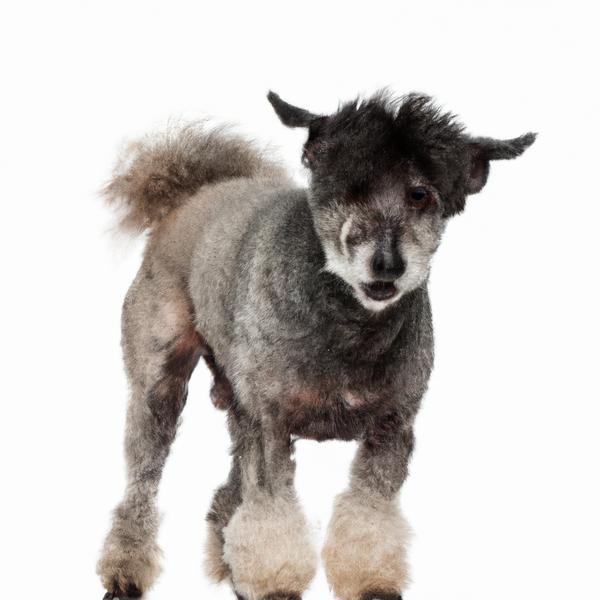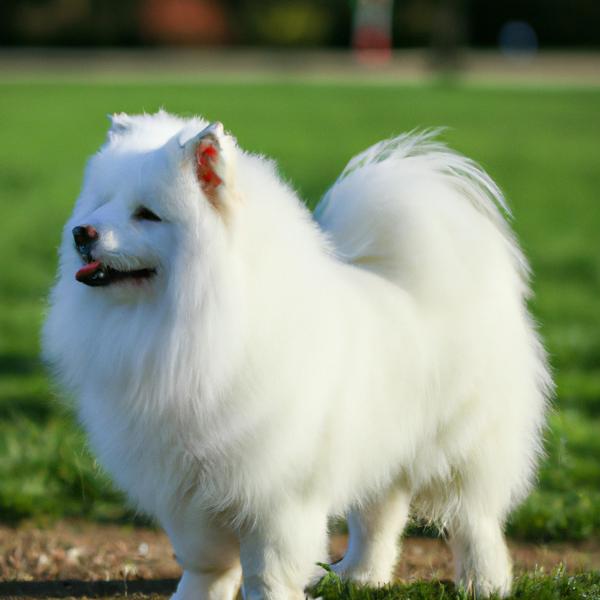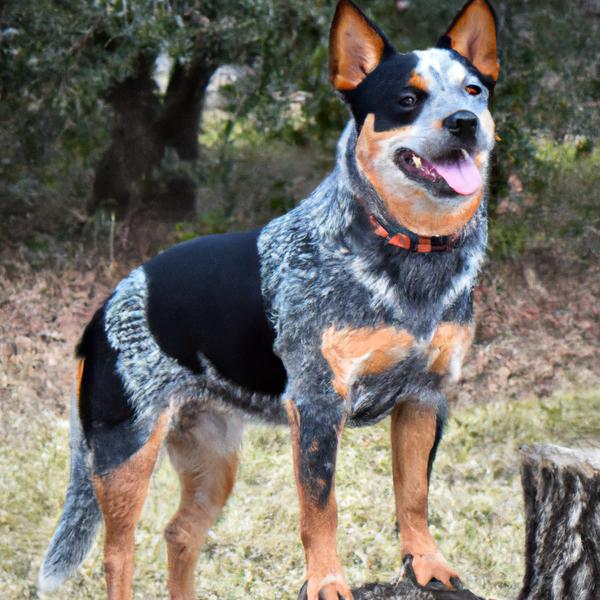Maltese vs. Westie Staff: Breed Differences and Similarities
Hypoallergenic
Are Malteses or Westie Staffs hypoallergenic, or neither?
While no dogs are truly 100% hypoallergenic, Malteses are about as close as it gets, making them an ideal pet if you are an allergy sufferer.
Unfortunately, the Westie Staff is not hypoallergenic, making it not a good choice for a dog lover who suffers from pet allergies.
Temperament
What are the personalities of Maltese and Westie Staff dogs?
Active
Easygoing
Intelligent
Responsive
Docile
Gentle
Playful
Sweet
Tempered
Independent
Alert
Courageous
Intelligent
Friendly
Affectionate
Loyal
Devoted
Attentive
Tenacious
Shedding Level
Do Malteses shed more than Westie Staffs, or which breed sheds more, Malteses or Westie Staffs?
Maltese or Westie Staff will shed a negligible amount of hair. Some owners say that they do not shed, but that is not true. But the amount of shedding can be rather light than other dog breeds. If you do not want to deal with the hairs flying around in your home, then this breed is a perfect choice for you.
Watchdog Ability
Which dog breed makes a better watchdog, the Maltese or Westie Staff?
Malteses are decent watchdogs - they'll alert their owner if something seems amiss.
Westie Staffs aren't great guard dogs; they tend to just watch without taking action.
Origin
What is the origin of Maltese and Westie Staff dog breeds?
Malta
United States
Ancestry
What are the origins of Maltese and Westie Staff breeds?
terrier
West Highland White Terrier and American Staffordshire Terrier
Breed recognition
Which kennel clubs recognize/register Maltese and Westie Staff?
American Canine Registry
American Kennel Club
America's Pet Registry
Canadian Kennel Club
Dog Registry of America Inc.
Federation Cynologique Internationale
Kennel Club of Great Britain
North American Purebred Registry, Inc.
American Canine Association, Inc.
Australian National Kennel Council
Continental Kennel Club
National Kennel Club
New Zealand Kennel Club
United Kennel Club
DRA = Dog Registry of America, Inc.
Date of Birth
When were Maltese and Westie Staff breeds first developed?
ancient times
2000s
Eye Color Possibilites
What are the eye colors of Maltese and Westie Staff dogs?
Brown
Brown
Nose Color Possibilites
What are the natural nose colors of Maltese and Westie Staff?
Black
Black
Coat Color Possibilites
What are the natural colors of the coat for Maltese and Westie Staff breeds?
White
Black
Gray
Brown
Cream
Fawn
Blue
White
Pied
Sable
Brindle
Coat Length
What is the typical coat length for Maltese and Westie Staff breeds?
Malteses are known for their coat length.
Westie Staffs have medium-length coats.
Coat Density
What is the density of the coat of Maltese and Westie Staff?
Coat Texture
What is the hair texture of Maltese and Westie Staff?
Straight
Litter Size
What is the usual litter size for Maltese and Westie Staff?
A Maltese can have a litter of 15-18 puppies on average. However, it's worth noting that the size of the litters can vary greatly. Factors that can influence litter size include the health of the mother, breeding history, and genetics.
A Westie Staff can have a litter of 5-10 puppies on average. However, it's worth noting that the size of the litters can vary greatly. Factors that can influence litter size include the health of the mother, breeding history, and genetics.
Adaptability
Malteses are highly adaptable and versatile, making them excellent companions for families and individuals of all lifestyles.
Westie Staffs are known for their adaptability and can adjust well to different environments and lifestyle changes.
Health Issues
Between Maltese and Westie Staff, which breed is more prone to health problems?
While the Maltese breed is generally healthy, occasional vet check-ups are still necessary to address any health concerns.
Westie Staffs typically have low vet costs due to their good health, but it's important to monitor their health and seek vet care when necessary.
Major Concerns
What are the major health concerns for Maltese and Westie Staff breeds?
Patent Ductus Arteriosus
Obesity
Hip And Elbow Dysplasia
Hypothyroidism
Heart Diseases and Disorders
Minor Concerns
What minor health issues should be kept in mind when owning Maltese and Westie Staff?
Mono/Bilateral Cryptorchidism
Hydrocephalus
Dental Disease
Portosystemic Shunt
Shaker Dog Syndrome
Inguinal Hernias
Skin Diseases and Disorders
Eye Conditions (Cataracts, Lens Luxation)
Occasional Tests
What occasional tests are recommended for Maltese and Westie Staff breeds?
Eye
Knee
Liver Ultrasound
CT Scan
Dental Examination
Physical Examination
Skin Evaluation
Blood And Urine Analysis
Diagnostic Imaging
Eye and Ear Examination
DNA
Energy
How do the energy levels of Malteses and Westie Staffs compare?
For those who lead a balanced lifestyle, Maltese and Westie Staff breeds may be a good choice as they have an average energy level.
Social Needs
Maltese vs Westie Staff social needs comparison
Maltese has very high social needs and requires regular mental and physical stimulation, a job or purpose, and companionship.
Westie Staff has above average social needs and thrives with interaction with humans and other dogs.
Exercise Needed
Maltese vs Westie Staff exercise need comparison.
Malteses require minimal physical activity for a healthy lifestyle.
Westie Staffs need high physical activity and are ideal for active individuals, but not suitable for sedentary lifestyles or small apartments.
Sleeping Need
Which of the two sleeps the most/least: Maltese or Westie Staff?
Maltese and Westie Staff breeds are known to have moderate energy levels and normal sleep patterns, typically sleeping around 12-14 hours per day.
Tendency to Bark
Do Malteses or Westie Staffs bark more/less frequently?
Maltese dogs bark and howl frequently and are not recommended for quiet homes.
The Westie Staff is a vocal breed that frequently barks and howls, and may not be suitable for those seeking a quiet companion.
Mouthiness
Mouthiness Comparison: Maltese vs Westie Staff?
Roaming urge
Maltese vs Labrador: Running away tendency?
Prey Drive
Maltese or Westie Staff - which breed has a higher level of prey drive?
Activity Level
Which breed has higher energy, Malteses or Westie Staffs?
Malteses are medium-energy dogs and typically enjoy socializing and playing casual or even sustained games of chase with other dogs. They may also have occasional periods of barking or racing around the house.
Westie Staffs are high-energy dogs. They need mental as well as physical exercise. These dogs require a lot of your involvement and without it they can, and will, become problematic dogs.
Tolerance of being left alone
Walks per Week
How many miles should Maltese or Westie Staff walk each week?
There's really no limit to how far you walk your dog as long as they're comfortable. For Maltese, it's at least 6 miles / week. Just remember to build distance and stamina gradually over time.
There's really no limit to how far you walk your dog as long as they're comfortable. For Westie Staff, it's at least 10 miles / week. Just remember to build distance and stamina gradually over time.
Activity per Day
Do Malteses or Westie Staffs require more exercise?
Both Maltese and Westie Staff typically require a minimum of 60 minutes of exercise each day. The exercise can be spread throughout the day and may involve high-energy activities like walking, running, and playing.
Grooming
Which breed is easier to maintain in terms of grooming, Malteses or Westie Staffs?
Maltese and Westie Staff are breeds of dogs that require an average amount of grooming effort.
Brushing Frequency
What is the recommended brushing frequency for Maltese and Westie Staff dogs?
Ideally, both Maltese and Westie Staff should be brushed at least 2 or 3 times a week (preferably daily) to improve shedding.
Brushing Tools
What brushing tools are used for Malteses and Westie Staffs?
Pin Brush
Dematter
Comb
Nail Clipper
Pin Brush
Slicker Brush
Comb
Nail Clipper
Cups
How much food should be given to Maltese or Westie Staff in cups?
For an average 4-7 pound (2 - 3 kg) Maltese feed 1 cups daily. But, keep in mind, the amount you feed is going to be dependent on the quality of the food you are feeding.
For an average 40-50 pound (18 - 23 kg) Westie Staff feed 2.5 cups daily. But, keep in mind, the amount you feed is going to be dependent on the quality of the food you are feeding.
Daily Cost
Which breed has a higher daily cost, Maltese or Westie Staff?
The average cost of a Maltese is somewhere $1.40 - $1.80 per day.
The average cost of a Westie Staff is somewhere $2.20 - $3.40 per day.
Monthly Cost
Which breed has a higher monthly cost, Maltese or Westie Staff?
The average per month expenses of a Maltese is between $42 - $53. This makes an average of $504 - $636 per year. It will be on the higher side when the dog is still small because it will need more frequent visits to the vet, shots.
The average per month expenses of a Westie Staff is between $67 - $101. This makes an average of $804 - $1212 per year. It will be on the higher side when the dog is still small because it will need more frequent visits to the vet, shots.
Intelligence
Comparing Intelligence: Malteses vs Westie Staffs
Maltese has below average obedience intelligence, but they excel in understanding human emotions.
Westie Staffs are average in obedience intelligence but have a high IQ and may cause trouble if left unsupervised.
Sensitivity Level
How do Maltese and Westie Staff compare in sensitivity?
These breeds are more sensitive than others and easily overwhelmed by new surroundings and people. Maltese and Westie Staff need gentle handling and a calm, stable home environment with positive reinforcement training.
Affection Dependance
Which is the more affectionate dog breed: Maltese vs Westie Staff?
Apartment Friendly
Which breed is more apartment-friendly: Maltese or Westie Staff?
Malteses make excellent apartment dogs, being fairly active indoors and not requiring a yard.
Westie Staffs are good apartment dogs as long as they get enough exercise and stimulation outside of the apartment.
Child Friendly
Do Malteses or Westie Staffs have a friendlier temperament towards children?
Maltese and Westie Staff are kid-friendly dogs. They are good with children and excellent dogs with children if they are socialized and trained at a young age.
Senior-friendly
Which dog is more suitable as a pet for the elderly - Maltese or Westie Staff?
Cat Friendly
Do Maltese or Westie Staff breeds have a better compatibility with cats?
Malteses are very friendly with cats and make great companions for them.
Westie Staffs are somewhat cat friendly and can be trained to get along with cats.
Dog Friendly
Which breed is more sociable with other dogs: Maltese or Westie Staff?
Malteses are generally very friendly towards other dogs, with a happy and affectionate temperament.
Westie Staffs are average in their friendliness towards other dogs, and socialization can help.
Pet friendly
How do Maltese or Westie Staff dogs interact with other pets?
Stranger Friendly
Which breed is more friendly with strangers: Maltese or Westie Staff?
Malteses are highly friendly around strangers.
Westie Staffs are friendly but may bark at strangers, and training is easy due to their intelligence.
Playfulness
Which breed is more playful between Maltese and Westie Staff?
Malteses have an average level of playfulness, enjoying playtime like most dogs but not excessively so.
Westie Staffs are very playful, so adopting an older one might be a better option for a more relaxed experience.
Trainability
How do the trainability levels of Malteses and Westie Staffs compare?
Malteses are usually easy to train but require consistency to fully obey commands.
Westie Staffs are popular for their ease of training and quick learning ability.
Compare Maltese with other breeds

Springer Spaniel Sheepdog
Maltese vs Springer Spaniel Sheepdog

Afghan Hound
Maltese vs Afghan Hound

Froodle
Maltese vs Froodle

Pumi
Maltese vs Pumi

Dogue de Bordeaux
Maltese vs Dogue de Bordeaux

Coton Eskimo
Maltese vs Coton Eskimo

Cesky Terrier
Maltese vs Cesky Terrier

German Shorthaired Pointer
Maltese vs German Shorthaired Pointer

Black Mouth Pom Cur
Maltese vs Black Mouth Pom Cur

Stump Double Cattle Dog
Maltese vs Stump Double Cattle Dog

Flandoodle
Maltese vs Flandoodle

Lagotto Romagnolo
Maltese vs Lagotto Romagnolo

